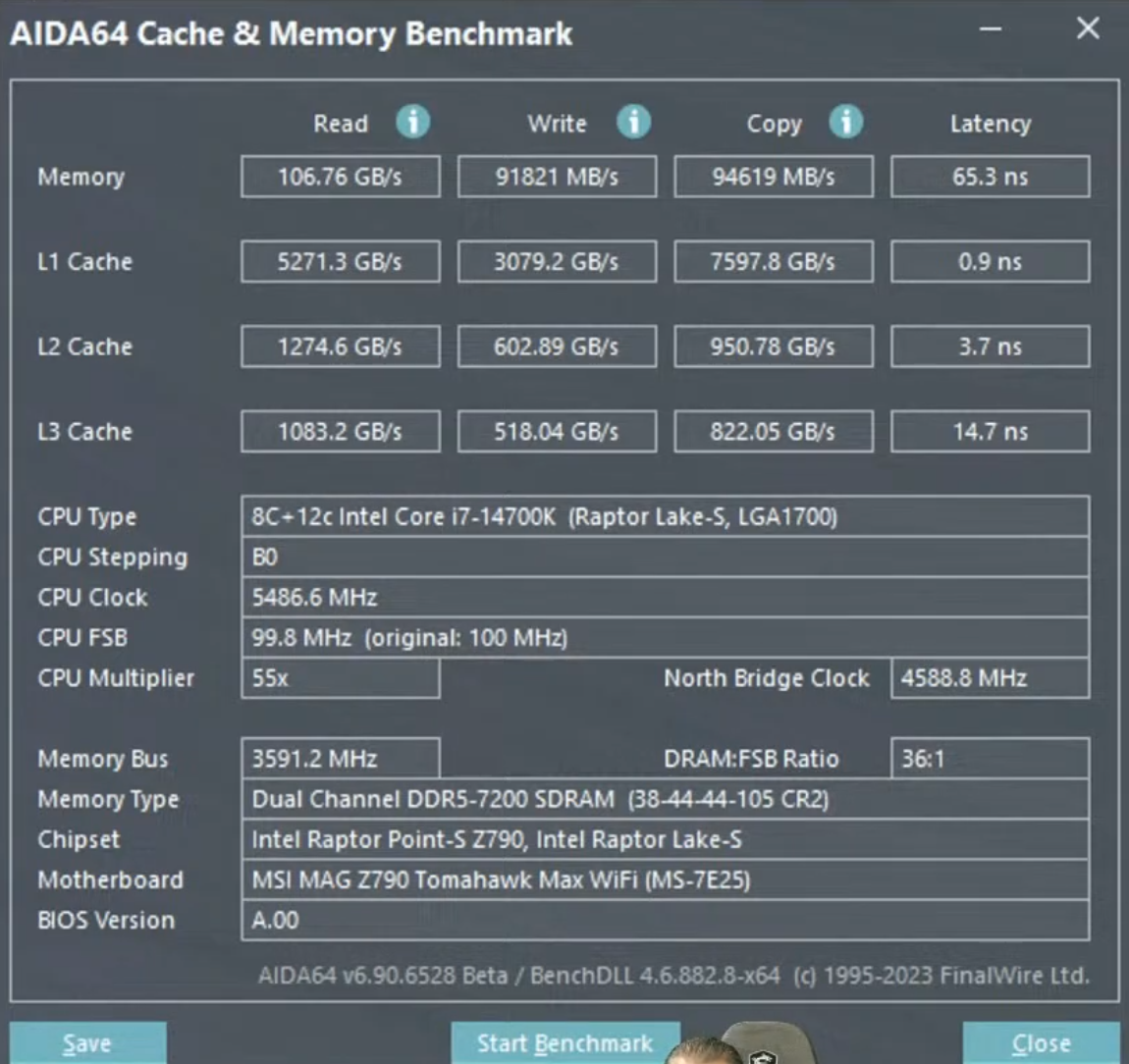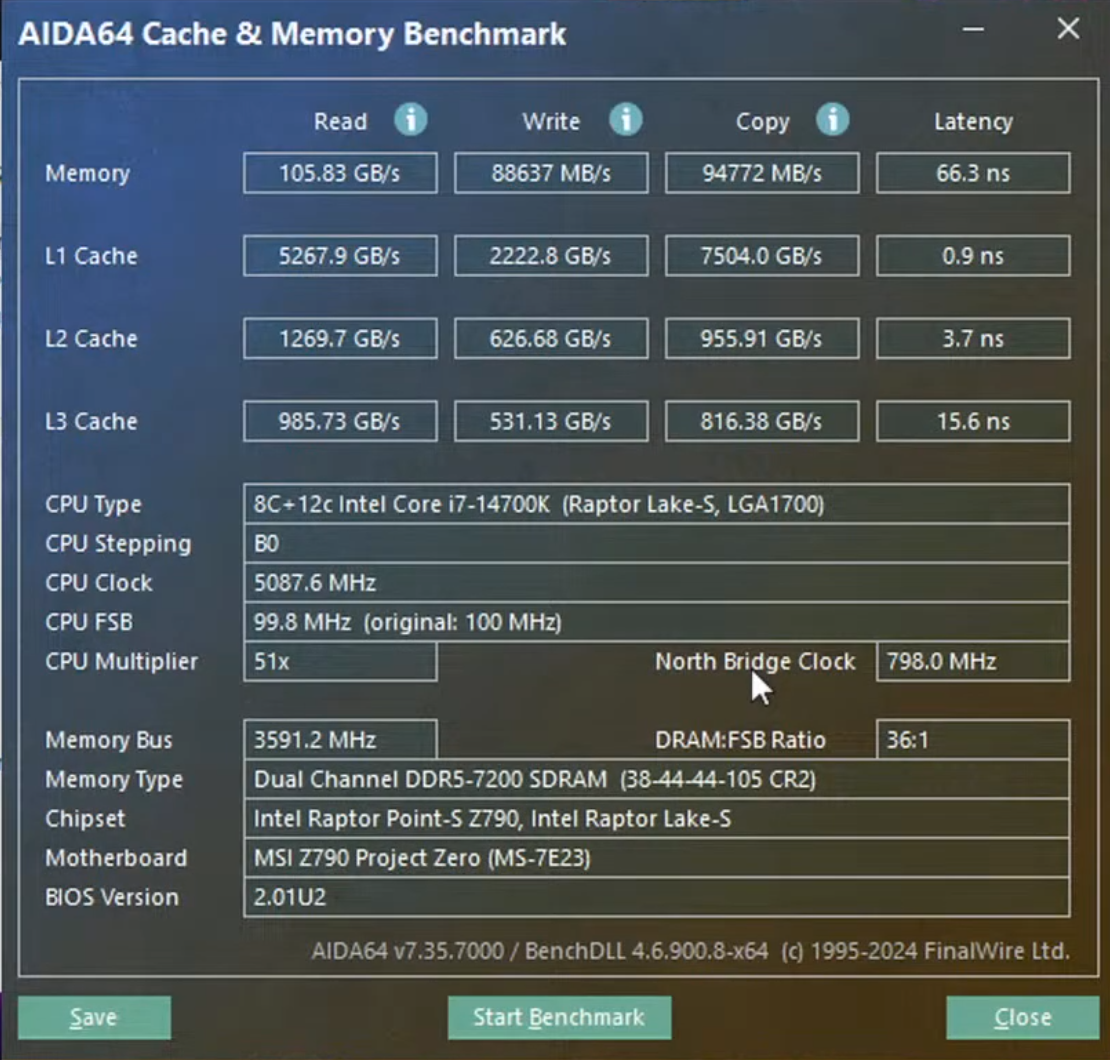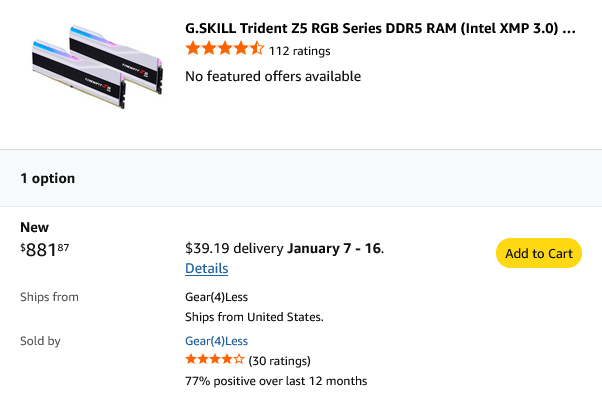CAMM2 is a brand-new memory standard that will debut on laptops and desktops. MSI recently benchmarked Kingston’s DDR5-7200 C38 CAMM2 with CKD on its CAMM2-equipped Z790 Project Zero Plus motherboard to compare its performance against standard DIMMs.
The two memory configurations were set at identical timings and frequencies. Both were set at DDR5-7200, and primary timings consisted of CL38-44-44-105 with a command rate of 2.
In AIDA64, the CAMM2 test rig achieved a memory read speed of 105.83 GB/s, a write speed of 88,637 MB/s, a copy speed of 94,772 MB/s, and a memory latency of 66.3 nanoseconds. In contrast, the regular DDR5 DIMM memory kit featured a memory read speed of 106.76 GB/s, a write speed of 91,821 MB/s, a copy speed of 94,619 MB/s, and a memory latency of 65.3 nanoseconds.
Technically, the mainstream DDR5 DIMM modules outperformed the CAMM2 memory module. Memory write speeds were 3% better for the DDR5 DIMM memory, while every other metric was virtually identical.
MSI’s testing confirms that the CAMM2 version of the DDR5 memory kit is virtually identical in performance, which is good news for enthusiasts worried about its performance. When set at the exact timings and frequency, nothing sets CAMM2 apart from a performance perspective.
Both form factors might look different but still use the same underlying DDR5 technology. AIDA64 is an excellent generic benchmark, but it remains to be seen whether the level of performance is the same in real-world workloads and gaming.

Watch On
CAMM2 is available in DDR5 and LPDD5X configurations, with the latter competing against some of the fastest XMP memory kits on the market regarding bandwidth. LPDDR5X versions of CAMM2 are significantly faster at the time of writing compared to CAMM2 DDR5, with the fastest versions going as high as DDR5-9600.
One takeaway from MSI’s test is that there appear to be no performance limitations on CAMM2. The standard comes with impressive data rates; however, many tests still need to be done to evaluate CAMM2’s overclocking headroom. CAMM2 support will be available on motherboards, but only time will tell how many vendors will jump on the train and release XMP-enabled CAMM2 products.






